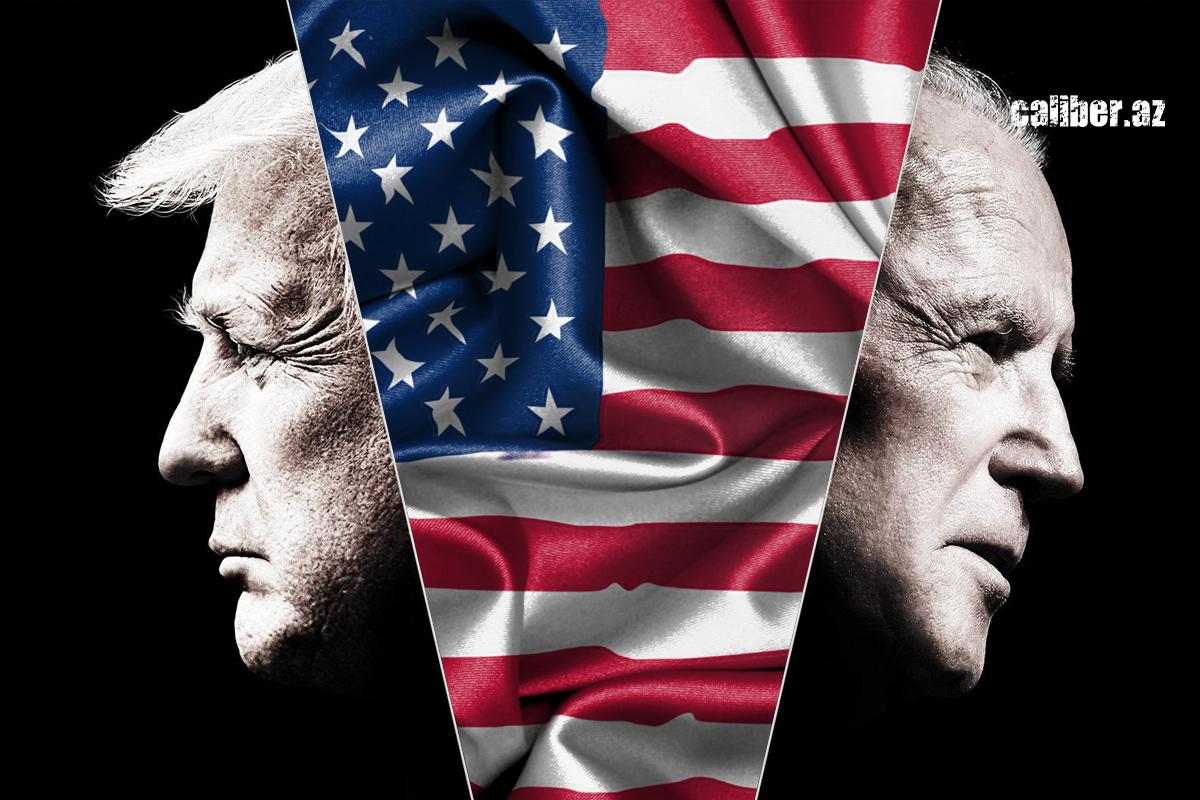From Macron's gambits to Biden's dilemma West faces political meltdown
Paris newspapers say that next weekend Macron may announce the creation of a coalition of countries to send military instructors to the Russian-Ukrainian war. Macron likes loud statements. But he cannot really give a fight to Russia or anyone else due to the weakness of his political positions and lack of resources.
However, the situation in the leadership of a number of leading Western countries is no better than in France. Their leaders' lack of strategic vision is increasingly aggravated by the precariousness of their positions within their own countries. As a result, they are failing after their failure in international politics as well.
Macron has no future, or how to collapse the party and flee to California
The collective West, primarily due to the weakness of American leadership, is less and less able to strategically coordinate its actions even on the most important issues. As a result, Macron has been playing escalating confrontation with Russia since last year. Having first hinted at sending troops, the French leadership then reversed course and is probing the ground for sending only instructors.
All this resembles another remake of the typical behavior of a certain part of the Parisian establishment. In the same way, former French President Sarkozy recently claimed to be a leader in NATO, but in the end he could not even cope with Libya, and had to call for American help.
Many in the West must have thought of Macron as the political reincarnation of Sarkozy, who is currently under investigation for Libyan bribes. It is interesting that just before Macron's loud statement about his readiness to lead an anti-Russian coalition, he received a “black mark” from the mouthpiece of the liberal Euro-Atlantic camp - the well-known publication Politico. Citing unnamed EU leaders, the publication said that the EU is not sure that Macron can have a future at all. It said he is increasingly resembling a “lame duck”.

He does lead a country whose army has just been pushed out of Central Africa and whose economy has been in decline for years. As even the Western-friendly World Bank has admitted, France's economy is 40 per cent weaker in purchasing power than even Russia's! Polls conducted in connection with the upcoming elections in a week's time show that the opposition alliance that he and his liberal associates crushed without choosing the means - Marine Le Pen's National Union - is ahead of Macron's Renaissance party by 16 per cent!
The degree of Macron's irritation among Euro-Atlanticists can be judged by the fact that German Chancellor Scholz also got in trouble for his campaign with Macron this time. It seems that all the fault of the latter was that he had just received the French president, who arrived in Berlin on his first state visit in a quarter of a century.
The French guest flew in to persuade the German chancellor to back another of his Napoleonic plans to build a global liberal alternative around a more autonomous EU in the event of a more than likely victory for Donald Trump in the US elections.
Scholz got it for his French counterpart. After all, unlike Macron with his ridiculous claims to leadership, which are not backed up by France's existing capacities, Scholz has never had any special ambitions. He modestly led the German coalition government in the difficult conditions of the loss of native German markets and sources of raw materials in the Russian Federation. Politico did not hesitate to pronounce a verdict on behalf of the EU establishment: Macron has no place at the helm of the EU. Nor does Scholz, although he did not claim.
The problems of European policy do not end with Macron. A number of key positions in Europe are occupied by politicians who have lost all credibility and have nothing to offer their citizens. Ursula von der Leyen is unlikely to be reappointed as head of the European Commission. In May, it turned out that even Macron, to whom she owes much of her rise in Brussels, had stopped supporting her for her “excessive politicization”. Other EU leaders are no longer shy about accusing Ursula of nepotism (a metaphor for trivial corruption), fixation on climate issues and weakening the EU economy.
The leader of another major Western power and major American ally, British Prime Minister Rishi Sunak, is also unpopular. He will not remain in office after the July 5 elections. Polls show his Conservative Party gaining 22 per cent compared to 44 per cent for the Labor Party. Because of his radical but unrealistic initiatives, the Conservative Party itself has split - about a hundred of its most popular MPs have refused to run in the upcoming elections. Sunak is told that after failing in the elections he will simply move to the American California. He denies such plans, but the former British environment minister Zac Goldsmith, who told about them, is a well-informed and respected man in the Conservative Party.
The upcoming elections promise to paralyze power in the US for a long time to come
However, the main problem for the collective West is, of course, the situation in the United States. And it's not just that former President Trump, who has already clashed with the global liberal establishment during his last term, is likely to win the presidential election. Right now, according to polls, Trump beats Biden by just one per cent. His support is growing, and most importantly, he is outpolling the incumbent in key states that decide the outcome of the campaign in the event of parity of power. After all, in the United States, the president is elected indirectly, which opens the way for, to put it mildly, ambiguous maneuvers during the elections.
In any case, it has long been clear that the current arrangement with roughly equal candidate strengths guarantees a multi-month political split and a crisis of executive power in the US that will ensure paralysis of Washington policy until the spring of 2025. In recent weeks, it has become clear that the same crisis awaits the legislative branch. The split in American society amid the stagnation of generational change in both American parties is obvious, and it naturally finds its expression not only in the results of the presidential election.
In November, the House of Representatives of the US Parliament will be completely re-elected: according to polls, Trump's Republican Party will lose its majority in it and the Democratic Party of the incumbent President Biden will dominate. After Trump's likely ascension to the presidency, this will lead to a violent conflict in Washington between the president and the parliament. The instability of power will be further exacerbated by the fact that the Democrats' majority in the House of Representatives will be negligible (according to polls, 219 seats will go to Democrats and 216 to Republicans). In addition, by the end of the year, the upper house of the American parliament will be reshuffled as a result of a series of elections. Biden's Democratic Party will lose its majority, and Trump's Republicans will win it, also by a tiny margin.

This means that for many important decisions, any party that wins a parliamentary election will have to negotiate with at least some of its opponents. This was not easy even in calmer times, and with the current polarization of American politics, such coalitions will be seen by each side as a betrayal.
Problems due to the weakness of the two branches of government will weave together into a protracted crisis of the entire American state. And it, unlike the possible complications and turmoil after the presidential election, will not end by spring. Any politician who wins the presidential election will face huge problems in leading the country due to the emerging split of the American parliament. And these problems, even in the best case scenario, may not be resolved until a couple of years from now.
The West is digging its own grave
The crisis of power in a number of Western countries is also evident in international politics. Weakness of positions in domestic policy turns into weakness in foreign policy. The recent decision of US President Joe Biden to ignore the summit on achieving peace in Ukraine to be held in Switzerland on June 15-16 was symbolic. Even Ukrainian President Zelenskyy did not hide his indignation and called such a decision by his closest ally “not very strong”.
The American top brass' lack of will and strategic vision for anything other than the current domestic political struggle is a concern even for the US’ longtime closest allies - countries like Japan and South Korea, which host large US military forces. That's why Seoul hosted the first trilateral summit since 2019 with Japanese Prime Minister Fumio Kishida, South Korean President Yoon Suk Yeol and Chinese Prime Minister Li Keqiang. And it was productive - they agreed, among other things, to resume trilateral talks on a free trade zone and dialogue on diplomacy and security.
And last year, at a meeting in Washington, the United States, Japan and South Korea were still building an anti-China alliance, and both Asian countries support Western sanctions against Russia! But material reality and the questionable ability of the collective West to confront China and Russia are forcing them to think about alternative solutions - in particular, rapprochement with China.
However, the collective West is also failing to cope with much smaller opponents than China or Russia, as exemplified by the situation in the Red Sea. The number of container ships passing through this most important route for the global economy in the pre-Suez Canal region has fallen by 90 per cent year-on-year as a result of Yemeni rebel operations. The Houthis began blocking shipping in the Red Sea last fall, in response to which the US launched operations against them in December and the Europeans in February.
Both operations have failed. Seeing this, large Western companies like Hapag-Lloyd openly say that the current situation will last for a long time and they plan to use a longer route around the Cape of Good Hope.
In this way, the collective West, led by the US, is actually resigning itself to the further collapse of the once global economy, because in the case of the Red Sea we are talking about huge flows of goods. And this situation is not an isolated incident, but an example of a general decline in the level of strategic vision of Western leaders.
A far more egregious example of this has been the arbitrary mass sanctions, the meaning of which is lost as their number grows. Even the mouthpiece of American finance capital, the Wall Street Journal, wrote indignantly about this. It noted that the US government's sanctions and export controls on Russia, China, Iran, Venezuela and North Korea, instead of leaving these countries without resources, have created a global shadow economy. Moreover, the countries under sanctions have created their own trade and economic bloc, which is powerful enough to give a fight to the US even in the financial sphere!

All these consequences were foreseeable long before they occurred, which is why the West's actions seem suicidal. By comparison, unlike in the modern era, in the old Cold War era, Washington policymakers recognized the dangers of this kind of global configuration and went to great lengths to limit Soviet influence in the developing world freed from European colonial oppression and to detach China from its alliance with the USSR. They successfully accomplished these tasks and won the Cold War.
Now the Western establishment is far from understanding such issues, it is much more concerned with the outcome of the US presidential election, which only guarantees a crisis of power in the United States with corresponding consequences for the entire collective West for the next couple of years. And, most likely, even if it will be possible to avoid a tough confrontation based on the results of Trump's return, still the American state will cope with the crisis only by the next presidential election, i.e. in four years.
The crisis of the global hegemon is a chance for the world
What does all this mean for the world outside the US and the EU, particularly the South Caucasus? Given the way Western elites have behaved toward non-Western countries, even allied countries, there is nothing to be sad about. It is through such crises that an opportunity for development arises, even if it is not directed against the West. The well-known events in Tbilisi were a case in point. Despite threats and open attempts by France, the EU and the US to interfere in Georgian policy, the Georgian government achieved the adoption of a law on transparency of financing of political activities in the country. And this was not the “Russian intrigue” that Tbilisi's opponents write about. Thanks to the loosening of the grip of Paris, Brussels and Washington, the Georgian leadership, which, by the way, has not refused to cooperate with the West on an equal and mutually respectful basis, has taken another step towards building a full-fledged (“like in America”) model of democracy in the country, rather than an adapted imported version of it “for the natives”.
More broadly, the current crisis situation can create new opportunities for the restoration of the historical unity of the South Caucasus, which will follow the restoration of Azerbaijan's territorial integrity, the conclusion of peace and normalization of relations in the region, and Armenia's emergence from the self-isolation into which nationalist expansionism has led it. Restoration of broken communications, establishment of ties between all peoples of the region on the basis of equality and mutual respect is not an anti-Western or anti-Russian policy of Baku and the forces ready to support it in the region. But this policy naturally limits destructive attempts by the world powers to interfere in the South Caucasus, the most characteristic example of which is their traditional support for Armenian nationalism. Without Macron and neo-imperialists like him, revanchism in the region will quickly come to an end.
As we follow the crisis of power in the West, we should not forget that it boomerangs back to the Western establishment the negativity they sow in the world. And this crisis may well be the beginning of a new, fairer era, the outlines of which have already begun to emerge in the South Caucasus.
The views and opinions by guest columnists in their op-eds may differ from and do not necessarily reflect the views of the editorial staff.








